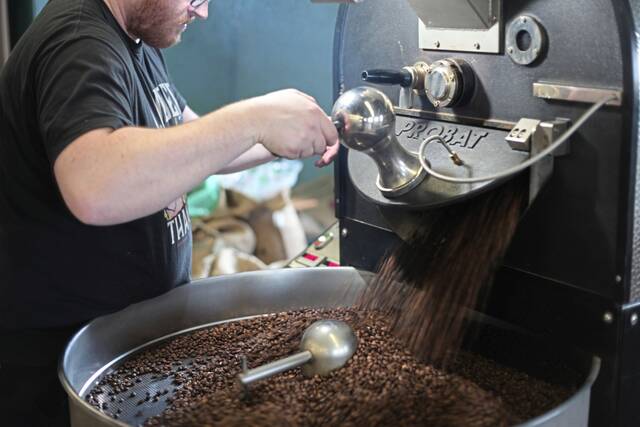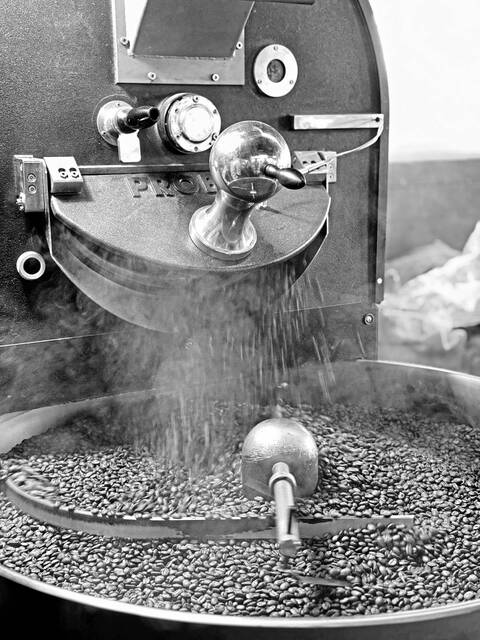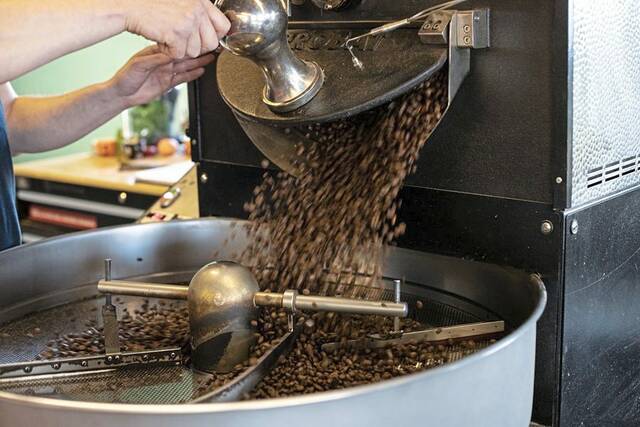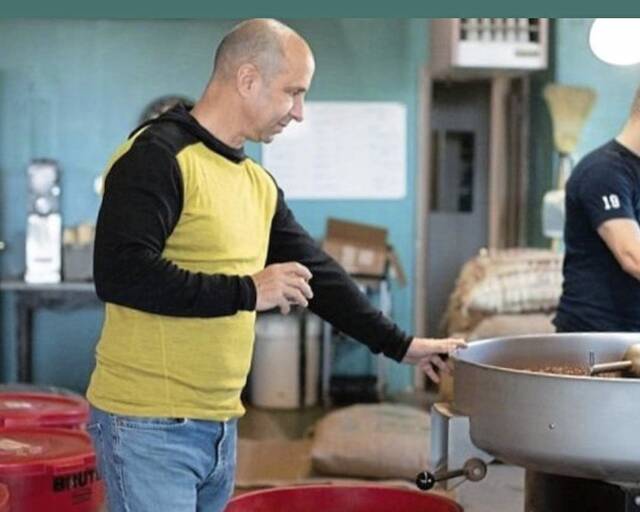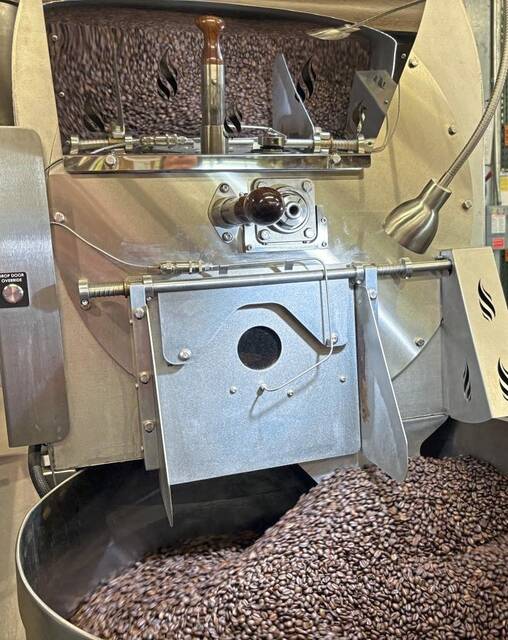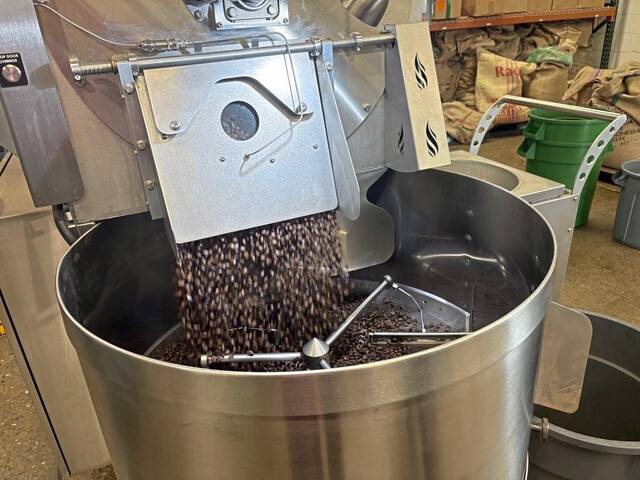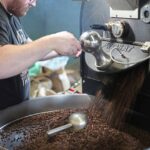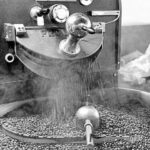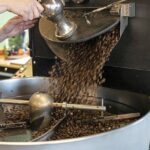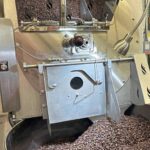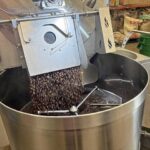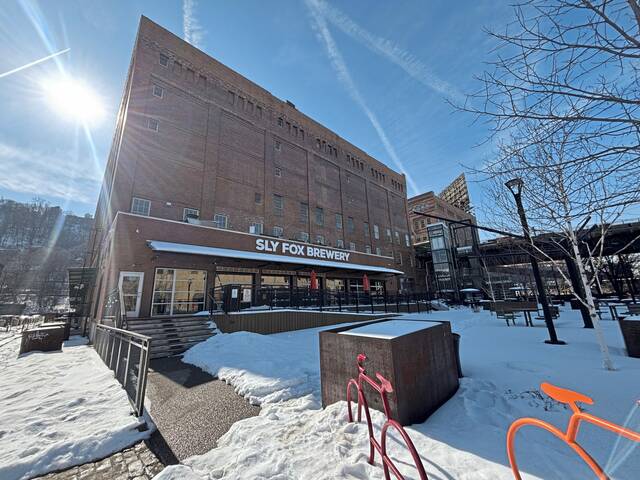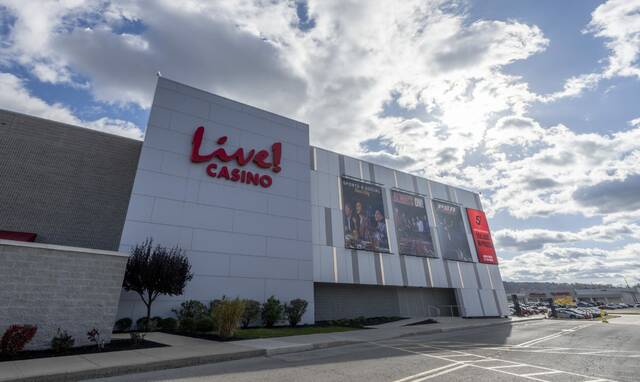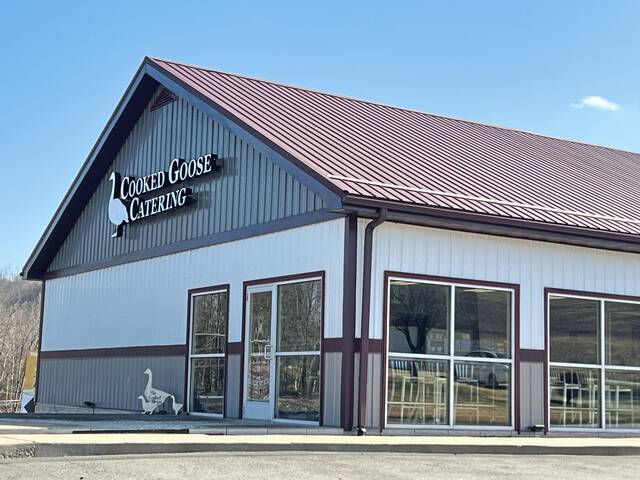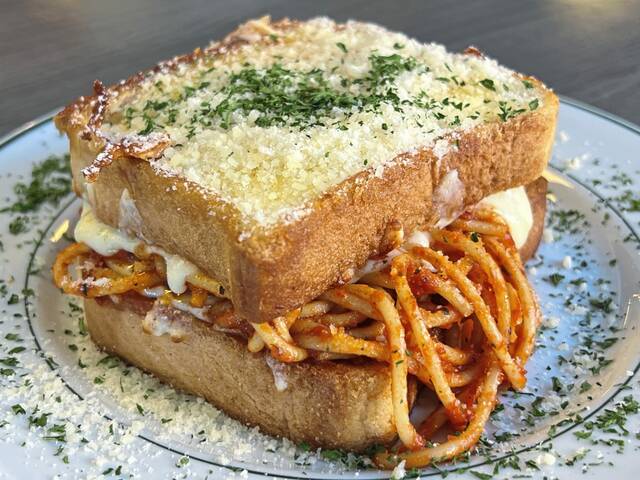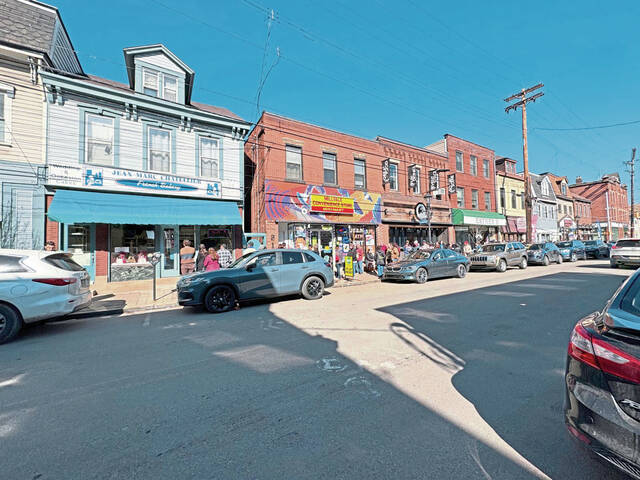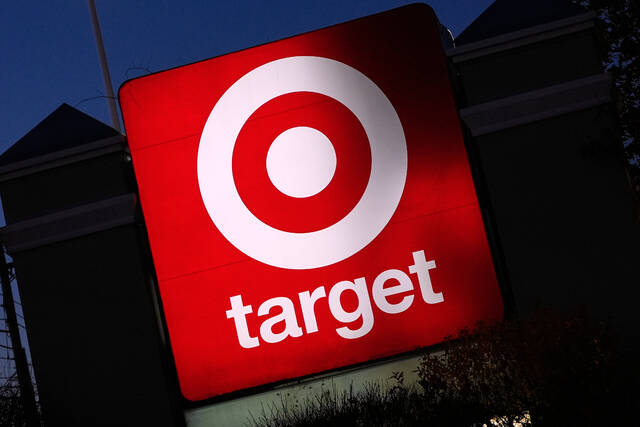Brazil is the world’s largest coffee-producing country and the second-largest coffee-consuming country, according to Specialty Coffee Association.
It also currently has the highest tariff — 50%, according to Cafe Imports, an independent importer and developer of some of the world’s finest specialty green coffees, which refers to unroasted coffee beans.
“These tariffs have a cascading effect,” said David DiOrio, owner 19 Coffee Co. in Whitehall. “It affects the whole supply chain.”
Because of the recent tariffs by the White House and Trump administration, which took effect in August, DiOrio’s company sent out an email to its customers saying 19 Coffee won’t purchase from Brazil because it has the highest tariffs. Tariff percentages vary by country of origin.
“We couldn’t wait any longer and had to raise coffee prices due to tariffs,” the email said. In terms of cost, that means at least a 50 cent increase per pound of coffee. Exact increases in prices vary based on where the coffee is coming from, DiOrio said.
According to Café Imports, one of the companies DiOrio buys from — Royal New York is another — tariffs put cost pressure on the industry as a whole. It said there is a legal challenge to these tariffs that has been appealed to the Supreme Court.
In a blog post, Café Imports has a chart of the countries and tariffs. India is also at 50%.
Most of the others are in the 10-15% range.
Because of the tariffs, DiOrio said they have to pass on additional costs to customers.
He said he realizes the goal of tariffs is to bring manufacturing back to the U.S. In the case of coffee, it is rarely grown in the U.S. because it requires tropical conditions, DiOrio said.
“We don’t have the right climate or elevation or soil to produce in the states,” DiOrio said. “The same goes with mangoes and bananas. We are left waiting to see if coffee will eventually be exempt. We are crossing our fingers.”
The Specialty Coffee Association of America has been lobbying to have these products exempt from tariffs because the only places to grow coffee beans in the U.S. are Hawaii and parts of California and Puerto Rico. The U.S. could not grow enough coffee to meet the amount consumed here, according to Chuck Connors, head roaster for La Prima Espresso on Pittsburgh’s North Side.
Two-thirds of American adults drink coffee each day, according to the National Coffee Association — more than any other beverage. Coffee supports 2.2 million U.S. jobs — operating in every U.S. state and territory and contributing nearly $350 billion to the U.S. economy every year.
Daily Coffee News on Monday reported that prices for roasted coffee in U.S. grocery stores rose 21.7% in August over the same period a year ago.
Connors said La Prima hasn’t seen the effects yet because they work with an importer out of New York and purchase reserves based on past usage and projected future usage. Their importer is being transparent and absorbing some of the costs.
“It’s a tough situation,” Connors said. “The tariffs are looming.”
At La Prima, coffee from Brazil is used in a few blends and bought in huge quantities. They might have to look for alternatives that hit the flavor profile to keep the taste consistent, Connors said.
Connors has seen conditions on contracts that show costs if a tariff is in place.
“We will try and absorb as much as we can,” Connors said. “It’s a balancing act. We don’t want to drive people away.”
As a wholesale roaster, 19 Coffee distributes to independent cafés and coffee shops in the greater Pittsburgh area.
“Every one of our customers is aware of tariffs and we have been extremely transparent with them,” he said. “They also know when tariffs go away we will go back to the original price.”
Alisa Paul is CEO of Commonplace Coffee, which is about to open its eighth café inside Northland Public Library in McCandless. She said the situation is volatile and unpredictable.
Commonplace plans to absorb as much of the costs as they can. They are also a roaster. Paul is seeing how tariffs are impacting the contracts they are brokering; some of the costs have already gone up because of the tariffs.
“We have some coffee sitting and waiting in Brazil in hopes that the tariffs will be removed,” she said.
Harvest Moon, with locations in Tarentum and Natrona Heights, has not seen the tariffs for green coffee just yet, said Anthony Singleton, co-owner of the business with his wife, Desiree Singleton. He said the green coffee currently at distributors came in before tariffs. He said the new harvest of Brazil coffee coming in the fall will see higher prices.
“But, it’s coming,” Singleton said.
He said small businesses feel the effects of various things, from items such as cups and lids to other reasons for coffee pricing to go up because of weather or war.
“We have seen fluctuations in pricing for the past few years,” Singleton said. “We buy raw materials and have seen quite a bit of volatility the past few years. We try to balance those variables and we have to adjust and we try not to pass it on to the customer. But we might reach that point where we have to.”


